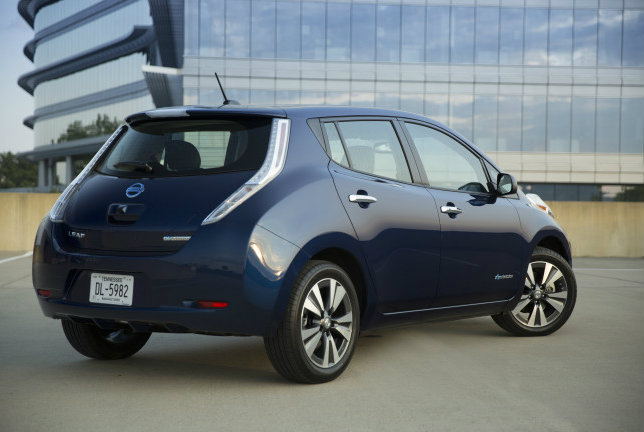The brainchild of Japan’s Nissan Motor Corporation, part of the Renault-Nissan Alliance, the LEAF was not just the first mass-market, all-electric car, but remains the biggest seller by miles. Amid growing concern about climate change, it seems a silent, sustainable revolution is already underway.

“People are seeing they need to make proactive changes in the mobility choices they make,” believes Gareth Dunsmore, Nissan Europe’s electric vehicle divisional general manager. “With an electric vehicle you have a practical alternative. We see the future of mobility as zero emissions. By 2020, with the right market conditions, price incentives and infrastructure, 20% of the industry volume should be electric.”
LEAF received a power hike to 30KW last September, adding 31 miles to its range. It already has a 92% customer satisfaction rating, but traveling further between charges will reach new customers, in every sense. Owners have driven over one billion all-electric miles in LEAFs, allaying any anxiety about how far battery technology has come. And, with 2,800 quick chargers across Europe, and 10,500 globally, you can go a long way before running out of juice.
“We see the future of mobility as zero emissions.” Gareth Dunsmore, Electric Vehicle Divisional GM, Nissan Europe
The UK is now Nissan’s number-one market for the car and, later this year, France should take the second place in sales from Norway, an early adopter. Aside from its impeccable green credentials, the LEAF offers plenty of other all-electric perks, like financial incentives when purchasing, significant running cost savings, dedicated and often free parking, and even the right to use bus lanes in a growing number of European cities.
“The next step,” Dunsmore says, “is using infrastructure for more than just you as an individual. It’s about using it in the wider service of the community and electricity networks. This is a major disruption, not only to the car industry, but to the whole energy industry. We’re working on vehicle-to-grid because the biggest issue power companies face today is spikes.
If the 20% of people driving an electric car by 2020 were all connected to the grid at the same time, that would be a huge power plant to draw from, so we’re not wasting any energy.”![]()









